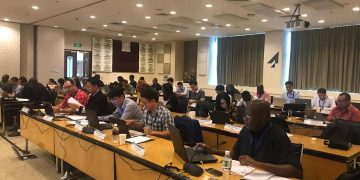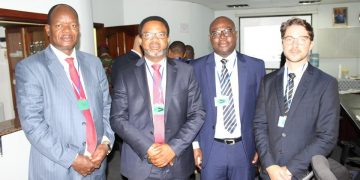Posted by Thelma Etim | Sep 17, 2019 | Air Cargo Newsdesk, Airports, Analysis, Editor’s choice, Financial news, Global Economic Trends, Global insight | 0

AIRFREIGHT throughput at major airports is being stifled by ‘isolationist policies’ and ‘trade disputes’, warns trade association Airports Council International (ACI) World.
“Protectionist rhetoric – fuelled by isolationist policies – has swept [across] several major economies in recent times and this has translated into a dismantling of established open trade relationships and regimes,” observes Angela Gittens, ACI World’s director-general.
“Because aviation has strong links to the global economy and to local development through commerce and tourism, these new barriers may restrain the efficient flow of people, goods and services; air transport very much relies on open markets to grow.”
The latest World Airport Traffic Report published by the association shows that whilst passenger numbers rose by 6.4 per cent in 2018 in comparison with the previous year, the air cargo market did not fare as well, writes Thelma Etim.
Global year-over-year airfreight volumes fell by 1.7 per cent in December 2018 against the previous year, bringing overall growth for last year to only 3.4 per cent, the ACI data shows.
“If these isolationist policies persist, their adverse effects will continue to stifle output growth in many countries,” Gittens predicts. “Economies that rely more on exports or carry higher debt loads will be most sensitive to a downturn, further exacerbating the economic conditions.”
July 2019’s airfreight traffic figures for European airports, which show that throughput declined for the ninth month in a row to minus 2.3 per cent, bear testament to the director general’s fears over how the global economic slowdown is continuing to stymie aviation markets this year.
“Air cargo has felt an even greater impact, as volumes handled by the world’s major airports contracted by 3.2 per cent in the first half of 2019. A resolution to the trade disputes will help put aviation markets back on track,” Gittens concludes.

















